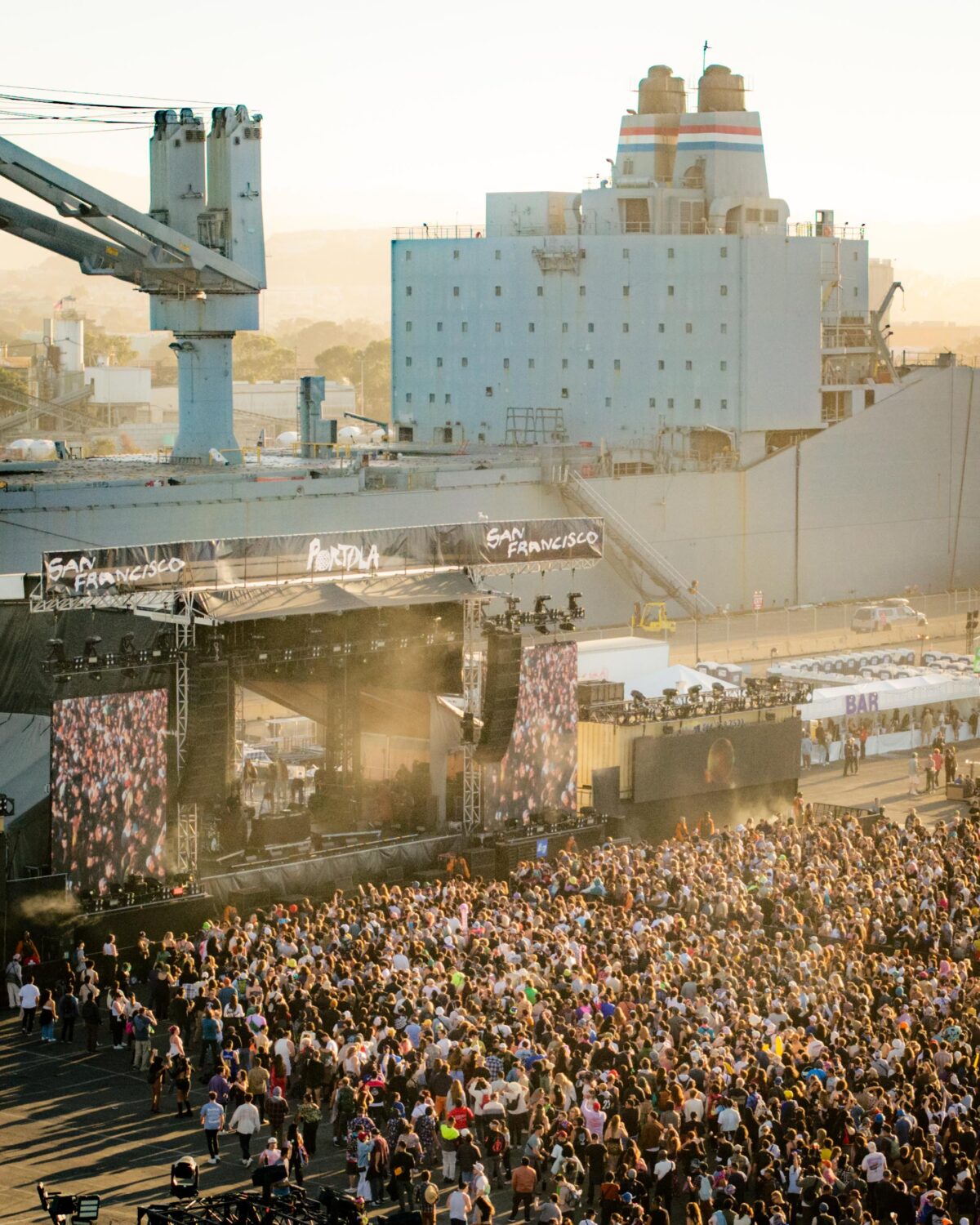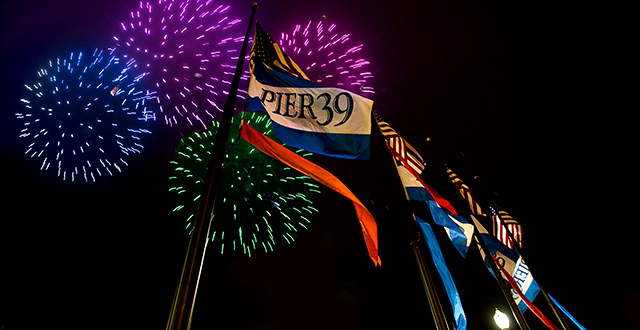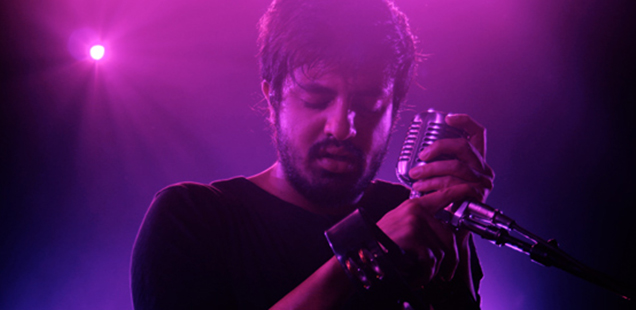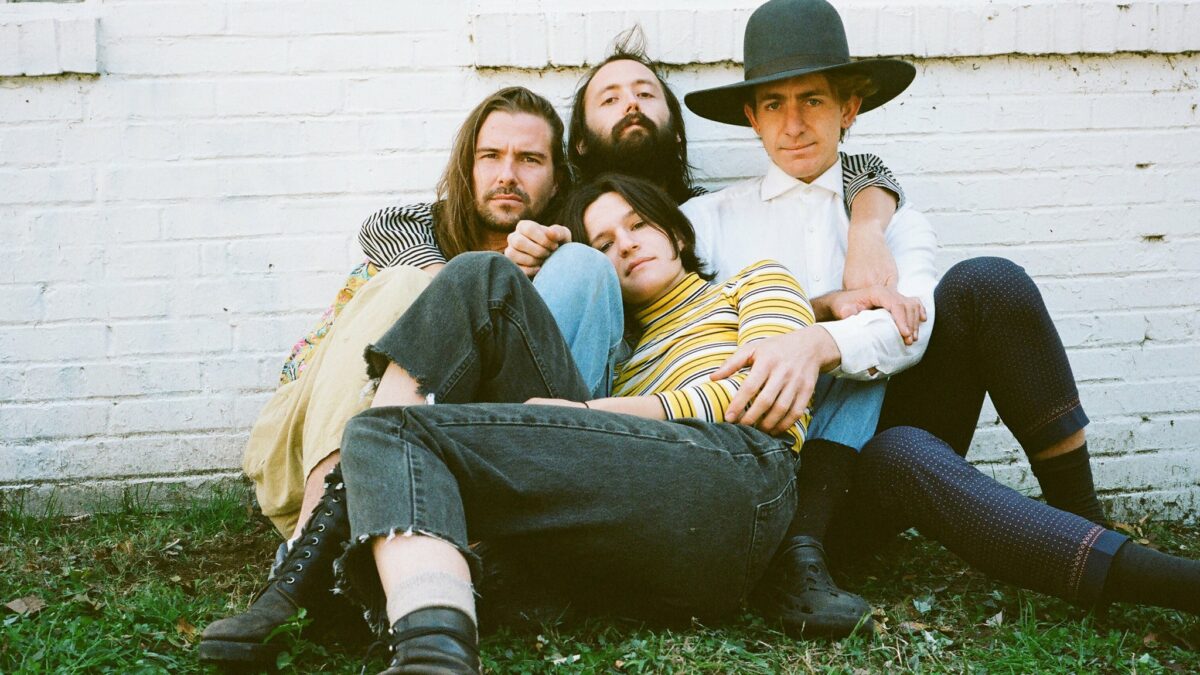Movie Review: ‘Tomorrowland’ is Worth a Visit
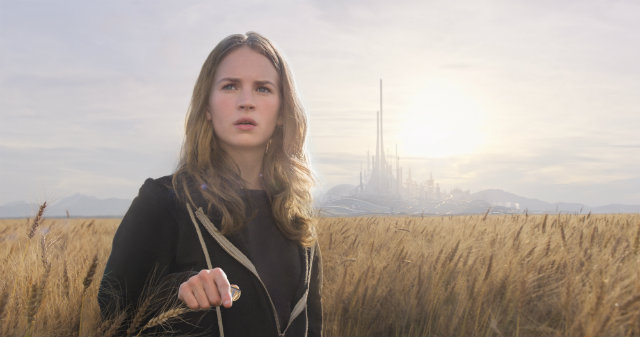
Perhaps Tomorrowland‘s greatest asset is that, in 2015, it’s a summer not starring a superhero or based on a comic book (even if it shares a name with a Disney themed land). Thankfully, it has some more to offer than just its originality. Director Brad Bird (The Incredibles, Mission: Impossible – Ghost Protocol) and writer Damon Lindelof (Lost, Prometheus) try to capture something of the days when the summer’s biggest flicks were awe inspiring and family friendly affairs, like E.T. Of course, there’s action and destruction, but their focus is on the story first and how blowing up a house can fit in to push the plot forward. While thoroughly entertaining, with a particularly strong lead from Britt Robertson, it also falls victim to the usual culprit in Lindelof’s films — great set up with a bumpy payoff.
The plot itself can be a bit muddled at times, but the general gist is that there exists a world in another dimension, the titular Tomorrowland, where the best and brightest humans have set up a sort of Utopia free of the politics and bureaucratic red tape ubiquitous in our world. Frank Walker (George Clooney) is recruited as a child prodigy by Athena (Raffey Cassidy) to come to Tomorrowland after he presents his homemade jetpack to David Nix (Hugh Laurie), a judge at the 1964 World’s Fair who also happens to be Governor of Tomorrowland.
The key to “entering” the futuristic city is a small pin — hello Disney merchandising! — given by Athena to her recruits. Decades pass since Frank’s seeming happy ending and the audience is introduced to the real hero of the story Casey Newton (Britt Robertson), the daughter of a NASA engineer and small time crook attempting to stop the dismantling of NASA’s space shuttle launchpad, symbolizing not only the impending loss of her father’s job but also our country’s contemporary disinterest in space exploration. Athena slips her a pin, and shown a glimpse of Tomorrowland, she’s soon on a quest to find it which leads her to Frank, who has since grown into a reclusive inventor after being exiled from his Eden. So with Casey’s help, he’s reluctantly pulled into a plot to save Tomorrowland
Why it needs saving is never very clear, other than the fact that Frank invented a machine that foretells of Earth’s imminent destruction. But as Bird and Lindelof get closer and closer to the big payoff, the specifics of what exactly Casey needs to fix becomes obscured, as does Nix’s involvement.
The overarching message behind the film, however, is always crystal clear. Becoming almost meta at times, it’s at once an earnest reflection on our world’s current obsession with our own doom, whether through global warming or overpopulation, and a all to action for our collective refusal to actually do anything to fix it, just discuss it ad nauseam. In 2015, it’s almost a trope in films to meditate on the apocalypse while wagging a finger at what seems to be a global shrug at the issue.
But for all of the films flaws — the biggest of which comes in a rushed third act that wraps up the story too quickly and too simply, especially after nearly ninety minutes of set up — it’s a visual thrill that’s ultimately able to overcome whatever holes it has. Bird has proven himself an adept director, first in animation and then with the surprisingly solid action sequel Mission:Impossible – Ghost Protocol. He combines both of those sensibilities into Tomorrowland to create something both exciting (and made to be seen on the big screen) but with the originality and excitement that greeted the birth of the summer tent pole. And despite it’s scripting flaws at times, it’s refreshing to see a summer blockbuster that, while still about saving the world, doesn’t have a cape in sight.
Rating: 3.5 out of 5



